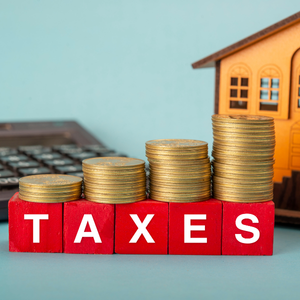
Navigating the complexities of capital gains tax in Seattle, WA, demands a thorough understanding of Washington’s specific tax laws and strategic financial planning.
With new regulations impacting various investment returns, questions arise regarding the legal avenues available for minimizing or avoiding these taxes. Whether you’re managing significant assets or planning future investments, grasping Washington’s distinctive approach to capital gains is essential.
This guide delves into the nuances of capital gains taxes in Seattle and explores legitimate strategies that may help reduce your tax burden while ensuring compliance with the state’s tax obligations.
Understanding Washington’s Approach to Capital Gains
Washington state’s approach to capital gains taxation adds a unique layer to financial planning. It’s essential to understand what constitutes a capital gain, as failing to do so can lead to unwelcome surprises during tax season.
Seattle, being one of the major cities in Washington, has its residents keenly interested in how capital gains taxes can impact them. While federal regulations play a role, Washington state itself introduces its unique taxation dynamics. This discussion uncovers the main elements associated with capital gains in Seattle and clarifies how the state implements its tax system.
What Constitutes Capital Gains in Seattle
The definition of capital gains is crucial for tax planning in Seattle and Washington. Selling assets such as stocks, bonds, or property can result in capital gains, which can significantly impact your finances. Gains are categorized by asset holding period, with short-term gains (less than a year) taxed at the individual’s ordinary income rate.
However, long-term capital gains are more significant for assets held for over a year, benefiting from lower tax rates. Washington Capital anticipates the impact of each, as the state’s tax system emphasizes capital gains and lacks a traditional income tax. Seattleites should know that Washington taxes these gains separately from the federal government.
Capital gains taxes’ impact on end-of-year financial summaries is still being regulated by the state’s tax system. Therefore, informed residents who sell assets often use strategic timing and portfolio composition to minimize capital gains taxes. The definition of a capital gain is also important to consider.
Investing in Seattle properties can be tax-intensive. Certain exemptions may reduce the tax burden when selling a home, but tax calculations must distinguish between personal and investment assets. While not all assets have capital gain implications, rental properties are directly involved in calculating potential tax liabilities. Effectively navigating Seattle’s financial landscape requires knowledge of Washington’s unique capital gains tax.
Overview of Washington State’s Capital Gains Tax
Washington State has its own capital gains tax regulations, which differ from federal regulations and may raise questions among residents. The state legislature recently enacted a capital gains excise tax, indicating a shift towards progressive taxation for wealthier residents. This state-level tax will affect people with large capital gains from stock or bond sales, but will exempt real estate sales, affecting tax strategies differently.
The tax applies a percentage rate to gains above a threshold, potentially impacting high-income individuals more than those with moderate financial portfolios. Seattle investors must be aware of their obligations to file correctly and in compliance with new laws. Since Washington does not levy a state income tax, this capital gain policy aims to boost state revenues differently, emphasizing its focus and demographics.
To meet these tax obligations, taxpayers must file capital gains tax returns carefully. Federal and state filings must be coordinated for accurate reporting. Understanding exemptions and filing strategies is crucial for those whose gains tax returns exceed the thresholds. The state excels at filing requirements and liability warnings.
This evolution in Washington’s capital gain taxation suggests investors must be vigilant and proactive. Taxes can significantly impact financial plans, requiring a strategic approach to minimize burdens and maximize investment returns through legislative changes. To navigate the regulatory environment, individuals should seek financial counseling from experts regardless of changes in local capital gains policies.
Exploring Legal Ways to Avoid Capital Gains Tax

Understanding capital gains tax strategies is crucial for Seattle residents aiming to reduce tax liabilities. There are legitimate avenues such as exemptions, deductions, and strategic timing that can be explored to minimize the impact of these taxes.
These methods not only help in reducing the capital gains tax owed but also align with sound financial planning practices. By examining the available exemptions and timing strategies, individuals can be better prepared to manage their capital gains tax obligations and optimize their financial outcomes.
Exemptions and Deductions Available
Seattle residents facing a high cost of living can reduce capital gains tax liabilities through available exemptions and deductions. One of the most significant is the primary residence exclusion, which reduces capital gains on a home sale. If ownership and residency requirements are met, individuals may exclude up to $250,000 of gain ($500,000 for married couples filing jointly).
This exemption helps homeowners who have seen significant property value appreciation retain more of their sale proceeds. Other deductions can reduce capital gains taxation beyond the primary residence exclusion. Investment expenses like outright gifts can lower capital gains taxation.
Outright gifts under the annual gift exclusion can reduce the taxable estate and reduce capital gains tax when the recipient sells the assets. Another method is tax loss harvesting, where investors sell underperforming stocks or mutual funds at a loss to offset gains from other assets. This strategy balances gains and losses, reducing net capital gain taxes.
These strategies can improve financial and tax planning, emphasizing the importance of informed decision-making. Understanding and using exemptions and deductions is key to Seattle capital gains tax planning. Strategically using these options may reduce capital gains taxes, supporting asset preservation and growth goals.
Timing Strategies to Reduce Tax Liabilities
Capital gains tax liabilities are greatly reduced by timing. Effective strategies include long-term capital gains, which are taxed less than short-term gains. Seattle investors can take advantage of lower tax rates by holding assets for over a year before selling. Long-term capital gains tax rates can significantly affect tax obligations, making this a popular strategy.
Another timing strategy is to consider income fluctuations. Capital gains increase taxable income in the year of sale. Due to the progressive tax system, selling capital assets during a lower-income year may lower investors’ tax rate. This method is useful for near-retirees and those with variable income.
Taxpayers can time sales around tax law changes. Tax outcomes can be optimized by monitoring tax legislation changes and aligning asset sales. Retirement planning can also match capital gains taxation. Converting assets into more stable income-producing investments before retirement may allow taxpayers to take advantage of lower effective tax rates and income stream matching with deferred tax obligations.
These timing-oriented methods emphasize strategic financial insight and proactive tax management. Investors who plan sales using these timing mechanisms can reduce capital gains tax and align their financial decisions with current tax regulations and long-term goals. Awareness and implementation of these strategies can help Seattle investors reduce capital gains taxes.
Impact of Home Sales on Taxes

Home sales can significantly influence tax liabilities, especially within Washington state, where unique tax regulations apply. Understanding tax regulations for homeowners and capital gain implications of a home sale is crucial for those navigating the local real estate market.
Washington’s taxation laws, including the excise tax, have a distinct impact on the financial outcomes of home transactions. By examining these aspects, homeowners can better manage gains and optimize their tax obligations efficiently, ensuring a comprehensive approach towards minimizing the capital gains tax impact.
Tax Regulations for Homeowners in Washington
Washington homeowners face complicated home sales taxes. Since the state has no income tax, home sales’ capital gains tax effects are often studied. Washington’s estate excise tax, unique to home sales, is important. The state-specific estate excise tax in Washington affects the amount homeowners owe when selling their properties, while federal capital gains taxes affect all states.
Homeowners must know about tax exemptions and deductions. Under the primary residence exclusion, homeowners can deduct up to $250,000 of gain ($500,000 for married couples) from the sale of their home if they meet ownership and residency criteria. This can significantly lower capital gains taxes, making it important for state home sellers.
Additionally, Washington’s tax policy changes must be monitored. Recent state legislation emphasizes progressive tax strategies for wealthier residents, including investment capital gains. Understanding how the estate tax affects these policies helps homeowners. Staying abreast of state and federal tax changes is crucial because strategically navigating these regulations can save a lot. Financial counseling can optimize home sale tax outcomes.
Capital Gain Implications of a Home Sale
When you sell a home, capital gains can have severe financial implications in Washington. Selling a home results in a capital gain equal to the selling price minus the purchase price. The gain is subject to taxation by the federal government. Washington does not have a state income tax; however, gains may be taxed if the capital gains tax provisions exceed the federal exemption provisions.
Understanding how to calculate capital gains is important. You need to determine the cost basis, which is the purchase price plus any capital improvements. Afterward, determine capital gain as equal to the sale price minus the basis. Residents of the country may utilize the primary residence exclusion to decrease their taxable gain. If their gains exceed a certain amount, their tax obligations may rise sharply.
Understanding tax rules is important, as Washington is not an exception. Even if it does not apply to primary homes, the estate excise tax on certain other home sales indicates the way the state attempts to derive revenue from the sale of a home. Homeowners may benefit from strategies that involve timing, like holding a property for more than a year in order to pay long-term capital gains. With the use of these techniques, residents of Seattle are able to efficiently minimize their taxes and maximize the profit from selling a home.
Dealing with Estate Excise and Other Taxes

In the State of Washington, the different types of taxes other than the usual capital gains tax involve separating tax elements from other categorizations. One such element is the estate excise tax, which is prominently featured in estate transactions.
This section attempts to explain how Washington fulfills its estate excise tax obligations and the tax’s differentiating factors from capital taxes. Wise counsel on tax planning principles will minimize your estate and Washington’s tax liabilities.
Navigating Estate Excise in Washington
Estate transfers and certain asset transfers are subject to Washington’s estate excise tax. Unlike the capital gains tax, the estate excise tax only applies to transfers of property after the transferor dies. This tax concerns only the gross value of an estate, deducting certain high-value estate-specific exemptions. Washington aims this tax specifically at the wealthy to make certain that their estate tax revenue continues to grow and their system of taxation remains equitable and progressive.
Estate holders should calculate and properly value their estate. Also, Washington’s estate excise tax applies only to certain Washington residents, and estates exceeding the threshold of filing and excise tax payable have brackets. Payments are due within the filing period, and the rates increase with value. Effective planning permits some to Live and Make Give, which reduces the payable estate tax and decreases the overall estate.
Also, a properly structured estate with estate planning specialists that specialize in Washington’s tax codes on excise and estate taxes can offer valuable guidance around ideas to lower some parts of the estate tax. These specialists can reorganize certain assets. With estate planning that goes with the tax codes, too, it is possible to leverage certain exemptions and lower the total tax payable. This guidance is beneficial because of the complexity of withholding and the tax payable. Fewer wealth caps, several beneficiaries, and more intergenerational transfer of wealth. This long-term approach also achieves the family’s estate planning.
Key Differences Between Estate and Capital Taxes
Best financial planning in Washington starts with estate and capital taxes. Death taxes focus on wealth transfer. Meanwhile, capital gains taxes focus on profits from selling assets during one’s lifetime. They both affect asset management and financial planning, but the legal approaches are different. These differences need to be understood to plan efficiently and minimize the tax burden.
To determine tax liability, estate taxes consider the total worth of the estate. That includes both tangible and intangible assets, for which estate taxes vary based on the estate’s total worth readily available in the will. Estate planners can recommend lifetime gifts, trusts, and charitable donations in order to avoid the estate tax problem. Capital gains taxes are more straightforward and focus on the profits received from the sale of the asset. Timing is a major issue, and selling after a year roughly gives long-term capital gains.
Tax planning is the major concern of a Seattleite. Estate taxes are more complex because they require planning to avoid them. Washington has recently introduced a capital gains excise, which differs from how income tax is treated elsewhere. Both certainly require substantial planning.
In the end, mastering the taxation of Washington state helps with your people’s finances. Recognizing various taxation systems assists in organizing scrupulous financial strategies and protecting personal fortune. Achieving financial objectives in the best possible way requires working with finance specialists for customized solutions in both cases.
Is there a way to avoid capital gains tax when selling your home? If you want to sell quickly, avoid costly repairs, or prefer a hassle-free sale, Sell My House is here to help. We work with cash home buyers in Seattle and can connect you with a trusted cash-for-houses company in Washington that makes the process simple. Get a fair cash offer, skip the stress, and sell your home with ease. Ready to get started or have questions? Contact us at (253) 289-3773 today for a no-obligation offer.
Helpful Seattle Blog Articles
- Guide To Selling A Tenant-occupied House In Seattle, WA
- Selling A Water-damaged House In Seattle, Washington
- Expert Tips For Selling Your Inherited House In Seattle, WA
- Selling A Seattle, WA, Home With Foundation Issues Successfully
- Comprehensive Guide To Selling Your Seattle, WA, Home By Owner
- Remove a Name from a Deed in Seattle, WA
- Is There a Way to Avoid Capital Gains Tax in Seattle, WA?
- Does a Seller Pay Closing Costs in Seattle, WA? Guide for Sellers
- Your Guide to Selling an Investment Property in Seattle, WA
- Selling Home with Reverse Mortgage in Seattle, WA
- How Long to Live in a House Before Selling in Seattle, WA

